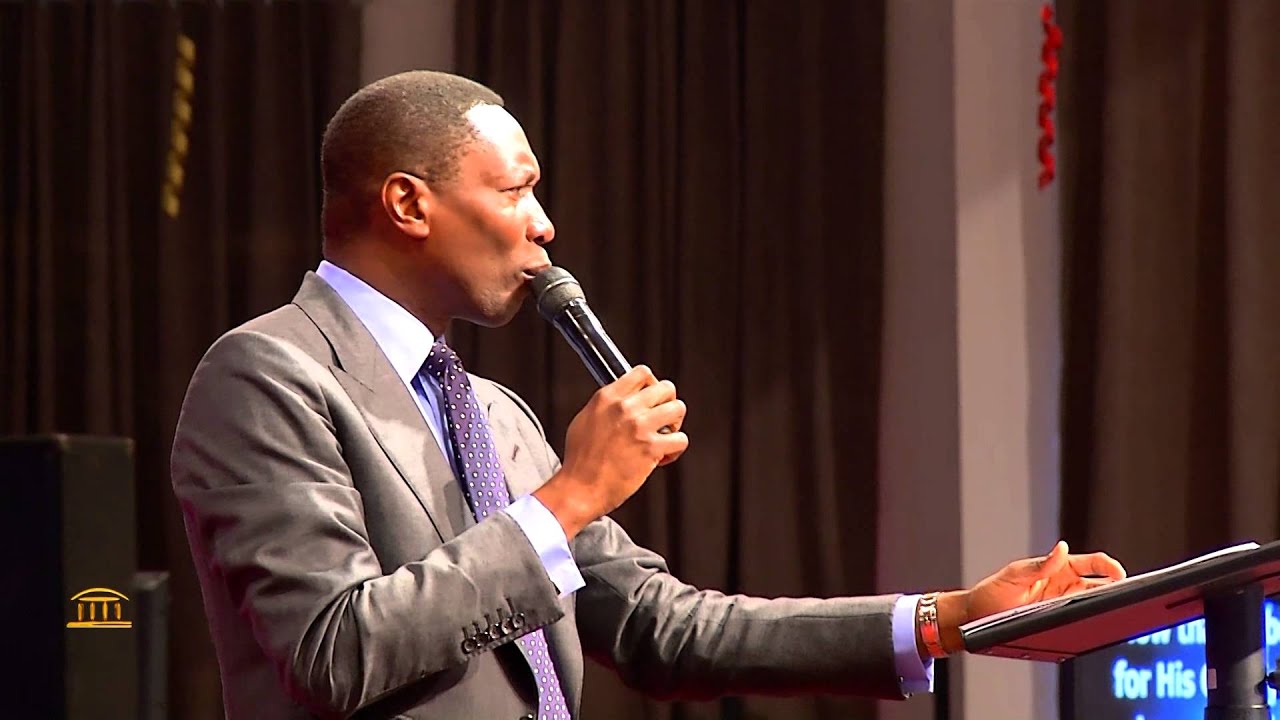
The Senior Pastor of This Present House Church in Lagos, Tony Rapu, has shared his views on sexual abuse.
He posted a lengthy write-up on his personal website, same day an interview where Timi Dakolo’s wife, Busola, accused Pastor Biodun Fatoyinbo of raping her, went viral.
Titled “Abuse in the light of the gospel”, Rapu spoke extensively on how sexual assault destroys “countless lives”.
The cleric did not also shy away from the fact that “this negative trend is now impacting people in our churches and those we are trying to reach with the message of the Kingdom.”
His essay reads in full:
Abuse in The Light of The Gospel
From child sexual assault to domestic violence to workplace harassment, abuse destroys countless lives. New stories filled with allegations of sexual abuse or assault by leaders and prominent persons continue to emerge. The #MeToo phenomenon has drawn significant attention to an issue that many are afraid to talk about. Only recently, some young girls spoke out against abuse by young Nigerian boys in UK universities, when they conducted a walk around the Bourdillon, Ikoyi area to bring attention to this issue. This negative trend is now impacting people in our churches and those we are trying to reach with the message of the Kingdom.
I believe many churches desire to get it right on this issue but often do not get involved because leadership may lack the competence to address the problem. Many lack the confidence to address sexual abuse because they don’t feel adequately equipped to handle the complexities involved. Others do not have sufficient training to address the challenges of sexual or even domestic abuse matters throw up. We need to understand how this issue of sexual abuse can be addressed in the light of the Gospel:
Caring for survivors:
Protecting and caring for others was a priority of Jesus Christ in His life and it should be for us today. The effect of sexual abuse cannot be overlooked or minimised. The trauma experienced by a survivor of sexual abuse should drive us to compassionate ministry. Many have never told anyone and I believe when they do, they need to be met with support and care as a first response. Because it is difficult to share, we must be sensitive even to delayed, vague or partial disclosure. Even in cases where it is still an allegation, survivors should still be supported as many innocent victims who have hitherto been shamed into silence are encouraged to voice their pain. There is no quick fix to this trauma. So we need to work patiently, not shaming the survivors, but allowing time for grief. If we do not respond appropriately to issues of abuse, we will end up bringing greater pain that traumatize the individuals, and we would never be able to effectively address this issue.
Confronting sin:
We must call sexual abuse sin. Since we understand God’s design for sexuality, it will be sad if the world were more willing than the Church to name and address the issue of sexual abuse. Sexuality was created by God for our good. When we understand the beauty of what God designed, we can appreciate the devastating effects of sexual abuse. We cannot ignore or cover the matter. Properly dealing with sin like this reflects what we believe about God and the Gospel. When prominent personalities in the world do not offer apologies for their actions, it provides a backdrop for the Church to discuss what genuine repentance should look like. Confronting sin means we are being honest when things go wrong in the Church. We must evaluate what went wrong in order to make appropriate changes in situations of abuse. It is never late to do the right thing.
Seeking justice:
Abuse is not just a sin. It is also against the law in many countries. As we have seen in cases globally where there is an attempt to cover up abuse, it is usually in a bid to avoid a scandal. Unfortunately, this produces a system that empowers and protects abusers and in the end it is the abused, particularly minors, who suffer. We need to be more concerned about dealing with sexual abuse in a way that cares for survivors and demonstrates justice rather than with the fear of what a scandal might produce. We must recognize sexual abuse as a sin but also something that goes beyond the jurisdiction of the Church. This is where many organisations make a mistake by trying to handle sexual assault allegations internally. Some have blamed survivors, even those who were children at the time of the abuse and have often pressurised them to forgive rather than seek justice. There is a sense of not wanting other people to know. We don’t want to air our dirty laundry in public. But we must never pressure survivors into forgiveness. Yes, we do need forgiveness; but we must not use forgiveness to undermine the severity of sexual abuse and keep survivors quiet.
Protecting the vulnerable:
We must look for ways to improve our effort to prevent and stop abuse. We can protect the vulnerable through sexual abuse awareness training. We need to demonstrate that the Church is a safe place both in preventing abuse, protecting the vulnerable, and getting help for those abused. We have a God who cares for the vulnerable and hears their cries. We as His people should be like Him. The Church should be the place where victims of sexual assault find help and hope. Training on how to identify sexual abuse and respond to survivors will help members navigate this difficult topic in a Christ-centered approach. We have a long way to go in not shaming the abused. We have been too afraid of being attacked by outsiders and too focused on maintaining our image. The truth is that addressing sexual abuse gives us the opportunity to acknowledge our sins and our need of a Saviour. It also demonstrates the nature of God to a broken world.




